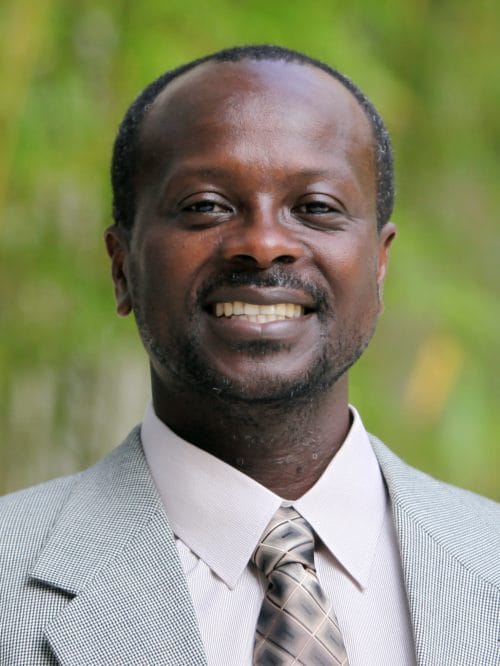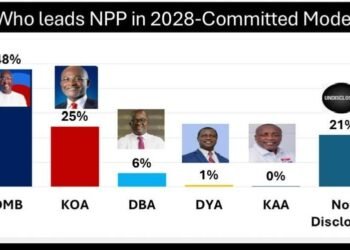A renowned legal scholar, Professor Stephen Kwaku Asare, has dismissed as “illogical and legally unsound” the claims that Justice Baffoe-Bonnie, the current Acting Chief Justice, has a personal interest in the outcome of ongoing petitions seeking the removal of the substantive Chief Justice.
At the heart of the controversy are allegations that Justice Baffoe-Bonnie, by virtue of his temporary role as Acting Chief Justice, stands to benefit personally should the petitions against the Chief Justice succeed.
But according to the Democracy and Development Fellow at the Centre for Democratic Development (CDD-Ghana), Professor Asare, such suggestions are both a misreading of Ghana’s constitutional provisions and a misunderstanding of how judicial responsibility operates within a functioning democracy.
Citing Article 144(6) of the 1992 Constitution, Professor Asare pointed out that the Acting Chief Justice assumes the role not through personal ambition or presidential discretion, but through the automatic operation of constitutional mandate.
“‘Where the office of Chief Justice is vacant or the Chief Justice is, for any reason, unable to perform the functions of his office, those functions shall be performed by the most senior of the Justices of the Supreme Court’. The acting role is a function of seniority and circumstance, not personal choice”.
Professor Stephen Kwaku Asare, Renowned Legal Scholar and CDD-Ghana Fellow
Moreover, Professor Asare stressed that the acting role does not guarantee elevation to the substantive position of Chief Justice.

According to him, that decision lies squarely within the prerogative of the President, who must also follow the established constitutional appointment process.
He asserted that the outcome of the petitions—whether they succeed or fail—has no bearing on Justice Baffoe-Bonnie’s standing as the most senior Justice of the Supreme Court.
To therefore suggest a conflict of interest, Professor Asare contended, is to misapprehend both the mechanics of constitutional succession and the underlying ethos of judicial service, which demands impartiality irrespective of rank or role.
Professor Asare, meanwhile, warned against the dangerous precedent that could be set by attempts to enjoin constitutionally designated officers from performing roles clearly outlined by the Constitution.
He noted that injunctions of this nature are “extraordinary remedies” that must be approached with caution and guided by the principles of judicial restraint and the separation of powers.

Such legal interventions, he said, should only be considered when there is “clear and convincing evidence” of a constitutional or statutory violation, and when no viable alternative remedy exists to protect the integrity of the judicial process.
“To enjoin a constitutionally-designated officer from performing duties that arise solely out of constitutional necessity—not self-interest—is to risk destabilizing the careful equilibrium of our constitutional architecture”.
Professor Stephen Kwaku Asare, Renowned Legal Scholar and CDD-Ghana Fellow
Counter Arguement
However, this position has not gone unchallenged. Richard Boateng Antwi, an activist, countered Professor Asare’s assertions, arguing that the question of interest must be evaluated not based on how the acting role was acquired but on the implications of retaining it.
“You argue that because Justice Baffoe-Bonnie’s acting role is constitutional, he has no personal interest in the case. This misses the point entirely”.
Richard Boateng Antwi
According to him, the continuation of Justice Baffoe-Bonnie’s role as Acting Chief Justice directly hinges on the outcome of the suspension challenge against the substantive Chief Justice.
While the position may have been assumed constitutionally, Mr Antwi argued that its duration and the benefits that come with it, such as increased national visibility, authority over the judiciary, and potentially enhanced consideration for the substantive role, are undeniably affected by how the petitions are resolved.

“That is the very definition of an indirect but real interest”, he remarked. He further elaborated that recusal, a common judicial principle across jurisdictions, is not premised on guaranteed benefits but rather on the possibility of receiving reasonably foreseeable benefits.
“What matters is not how he became Acting CJ, but whether he benefits from a ruling that upholds the suspension. He clearly does”.
Richard Boateng Antwi
He also argued that the prolonged exercise of authority by Justice Baffoe-Bonnie in the acting capacity, coupled with the attendant prestige and influence, amounts to a significant, tangible interest that warrants disqualification from participating in any proceedings that could determine the outcome of the substantive Chief Justice’s fate.
Finally, Mr Antwi contended that Justice Baffoe-Bonnie staying in the acting role could naturally influence the President’s perception of his suitability for the substantive post.
This, he concluded, is a conflict of interest, even if indirect.
READ ALSO: Cedi Gains Traction as FX Demand Eases, Records 7.44% Year-To-Date Gain























